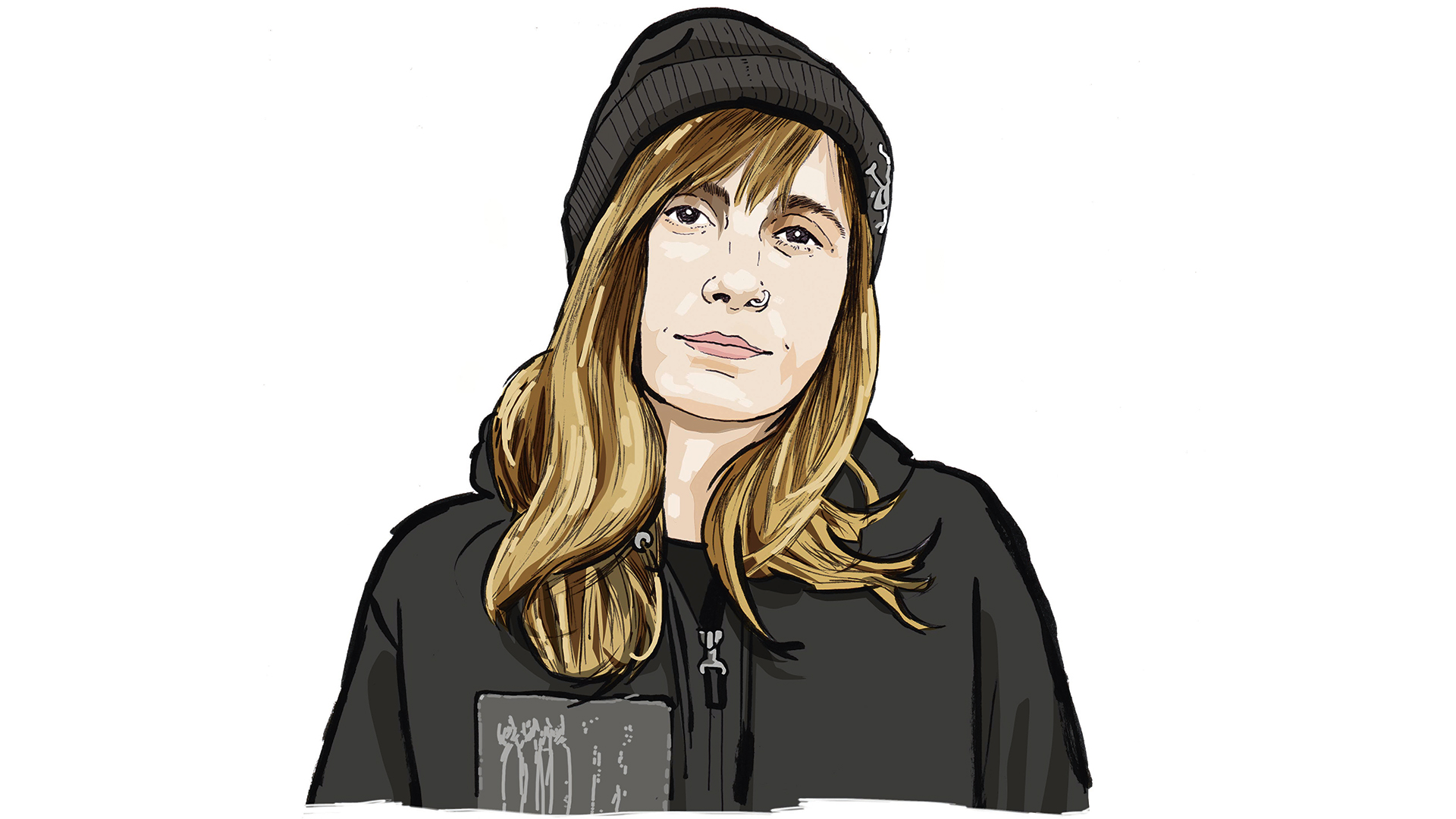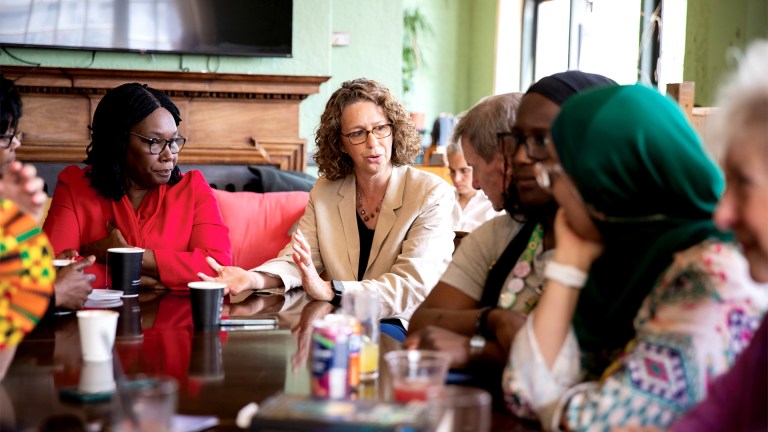Like many young people growing up in small British towns, surrounded by injustice and disparity, it was punk rock that politicised Ren Aldridge. “I’d go see punk bands as a teenager in Bristol,” she says. “I was so inspired by what they had to say. The band Anti-Flag were massive for me. They were so outspoken about things they thought were wrong in the world.”
Punk gigs instilled in her a strong anti-capitalist outlook and when she moved to London for university aged 19 Aldridge joined a band, got involved in feminist activism and campaigned for anti-austerity. Since 2012 she has fronted feminist post-hardcore outfit Petrol Girls, one of the most exciting voices in the British punk scene. And she has continued her fight to build a new, fairer world, with one of her main focuses the movement Punks Against Sweatshops.
“Band T-shirts are central to the economy of being in a band,” Aldridge explains. “It’s literally how we all sustain ourselves. When Petrol Girls first started, we’d stay up all night screen-printing T-shirts so we could afford the get to the next show. The sad fact is though, that many bands are printing T-shirts that aren’t ethically made, they are made in sweatshops. And that’s where Punks Against Sweatshops comes in.”
The Punks Against Sweatshops campaign follows the devastating 2013 Rana Plaza building collapse in Bangladesh. The eight-storey building contained several garment factories with a predominantly female workforce: the day before the collapse, workers had identified cracks in the building’s ceiling and walls. They were ordered to work anyway: by the end, the final death toll was 1,134 and 2,500 injured people
were rescued.
The tragedy has become a symbol of the fight to secure better working rights, wages and care for people working in the garment industry, and prompted international calls from politicians and consumers for the fashion industry and retailers to be more transparent about their supply chain and corporate social responsibility.
“The majority of those working in sweatshops are women,” says Aldridge, “As well as dangerous working conditions, exemplified by the Rana Plaza, sexual harassment is rife in these places. Violence is rife. Child labour too. It would be hypocritical of me to be in a feminist band and then exploit women in that way by using sweatshop-made T-shirts.”





